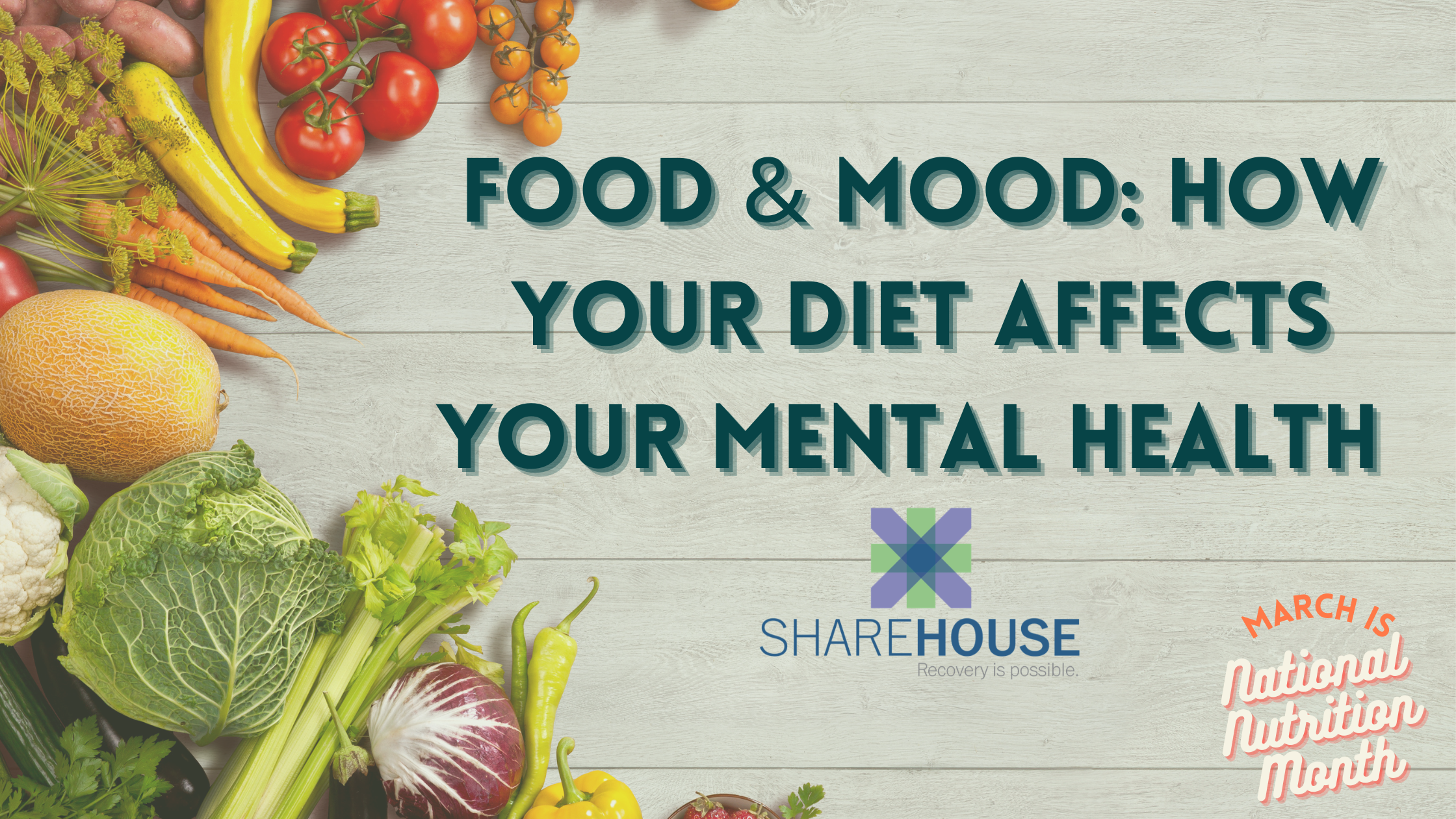
A car needs fuel to run, right? Well, so does your body. Your brain is working hard around the clock to keep you functioning correctly, and the source of your ‘fuel’ makes all the difference. What you eat will affect your physical health, your mood, and even how your brain functions.
March is National Nutrition Month, and ShareHouse wants to stress the importance of how a healthy diet can affect your mental health. You’ve probably heard of the expression, “you are what you eat,” and that statement couldn’t be truer. The medical field didn’t fully acknowledge the connection between food and mood until fairly recently. Now, we know highly processed foods and diets high in refined sugars can be harmful to the brain. Here are some examples of correlations between what you eat, how you feel, and how you behave.
Inflammation
Chronic inflammation is the invisible disease most don’t know they have until damage has been done. Diets high in refined sugars, for example, can cause chronic inflammation and worsen your body’s regulation of insulin, making these foods harmful to the brain. Eliminating sugary drinks, beverages that contain high-fructose corn syrup, and refined carbohydrates like white bread and pasta will help reduce the likeliness of inflammation occurring in the body.
Recent studies have suggested that the immune system supports brain health in several ways. The activation of certain immune system cells in response to an infection, such as chronic inflammation, may contribute to mental illness. Observational studies have concluded a link between immune system activation and depressed mood, finding depression is more common in patients with type 2 diabetes, rheumatoid arthritis, and coronary artery disease – all of which involve chronic inflammation. A 2006 review identified 17 studies that reported biological signs of inflammation in the blood or spinal fluid of patients with major depressions who were otherwise healthy.
Eating with Mental Health in Mind
Some examples of mind and body boosting ingredients include folate (folic acid, vitamin B9), vitamin D, and omega-3 fatty acids. Try adding foods rich in antioxidants such as grapes, green tea, berries, and dark leafy greens. Oily fish such as salmon, trout, mackerel, anchovies, and sardines are the most highly recommended sources of omega-3 fatty acids, and the American Heart Association suggests eating these types of fish at least twice a week. A study done in the British Journal of Psychiatry discovered that a diet rich in whole foods like fruits, vegetables, and fish can lower your risk for depression in middle age. Meanwhile, people who ate a diet high in processed foods were more likely to be diagnosed with depression.
Keep in mind there are a range of inequalities that can contribute to the development of mental health issues. Mental health is complex, and can be affected by many different factors such as poor physical health, illnesses, living in poverty or deprived communities etc. Depending on your situation, stress and depression are severe and can’t be managed alone. If you find it hard to control your eating habits or if your mental health worsens, consider seeking professional counseling. Asking for help is never a sign of weakness or failure, especially if your situation is too difficult to handle alone
Visit our website or contact ShareHouse for more information about our services.
Sources:
https://www.health.harvard.edu/newsletter_article/infection-inflammation-and-mental-illness
https://www.mhanational.org/healthy-diet-eating-mental-health-mind


